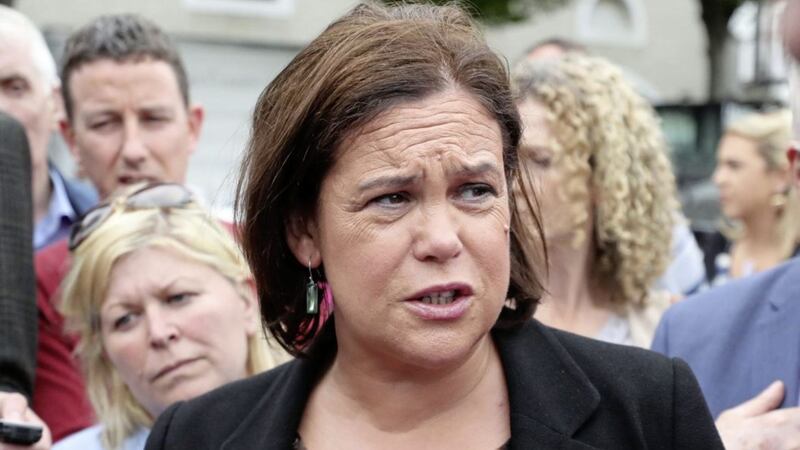You read it here first. In March, two months before a vote was cast, north or south, this column suggested that Sinn Féin needed a new leader and new leadership. The opinion pleased some in the party and upset those who cannot tell the difference between criticism and advice.
This week, media commentators were shocked at the Sinn Féin slump. But two politicians also foresaw the car crash: Leo Varadkar and Micheal Martin. Varadkar told his party's spring conference that Fine Gael would never enter government with Sinn Féin.
He discovered what Martin knew two years earlier: SF was poor in local government and its Dáil policy of blanket opposition to everything was counter-productive. They realised Sinn Féin was past its best.
A third person may also have anticipated SF's demise. Did Gerry Adams retire a year ago knowing that he had brought the party as far as it could go? We will never know.
Since he left, Sinn Féin has performed terribly. In the presidential election, support fell from 13 per cent to six. It just about held its own in the north's council poll, but its northern vote fell by 30,000 in a reduced turnout at the Euro elections.
In the southern council elections, it lost half of its 159 seats. Six former councillors, who had been in dispute with the party, were re-elected as independents.
In the south's Euro elections, it lost about 100,000 votes and sent a depleted representation to Europe. Overall, it was the worst performance by any Irish party since the collapse of Fianna Fáil, following the economic crisis in 2008.
Mary Lou's response to SF's Titanic moment was that the party is not about winning elections, which may rank as perhaps the most misguided statement by any party leader anywhere, ever. Martina Anderson described Mary Lou as "fantastic", which suggests that the first thing SF must do is come out of denial. Then it can tackle its three problems: style, content and identity.
Sinn Féin's style might best be described as unnecessarily aggressive. Everything warrants major confrontation, which means that, in the end, nothing is important. Their style wins few friends and means they are not transfer friendly in elections.
They might learn from the polite and reasoned approach which Micheal Martin adopted to rebuild his party's electoral support.
SF's political content is confusing. It is Euro-critical, but not Euro-sceptic. (Try explaining that on the doorstep.) It attacks Leo Varadkar in Dublin, but supports civic nationalists' view of him as a defender of rights in Belfast.
It criticises the DUP's role in Westminster, but refuses to go there and oppose them. (They say they were not elected to attend. They were not elected to bring the bedroom tax here either, but they did it anyway - and then denied it.)
They supported RHI, but abandoned Stormont because of it. They advocated democracy, but supported petitions of concern. They claimed to be republican, but said Irish Protestants were British and they abandoned them to the DUP. They opposed sectarianism, but enshrined it in Stormont.
SF's problem is that, up to now, it was good at elections, but poor on governance. That failure of governance has now come back to haunt the party.
During ten years in government at Stormont, Sinn Féin waved the tricolour and cut social services. It told us to prepare for a united Ireland and watched schools go bankrupt. It talked of equality, while child poverty rose and it criticised those who wrote about it.
For content, they might learn from Independent Clare Daly, who took their Euro seat in Dublin.
Finally, the party suffers from a lack of identity. It meanders along the political spectrum from left to right, claiming to oppose austerity, for example, while campaigning for lower corporation tax. Its effectively apolitical stance has been conditioned by the IRA tradition since the War of Independence of fighting for itself, rather than the people. That's why the Good Friday Agreement produced jobs for the boys and girls, but little for the rest of us.
Part of Sinn Féin's problem is that the boys of the old brigade have largely deserted it, to be replaced in many cases with career-minded political yuppies. So can Mary Lou turn it all around? Probably not. (Next time, will they elect, rather than appoint, a leader?)
In most parties the leader would now resign. But SF is more likely to create a diversionary crisis or tactic and present itself as a political messiah. It might work in the short term, but a better approach would be to stop posturing and start politicking.
The next few months will tell us which approach they have adopted.









